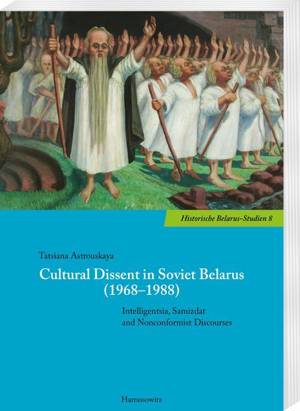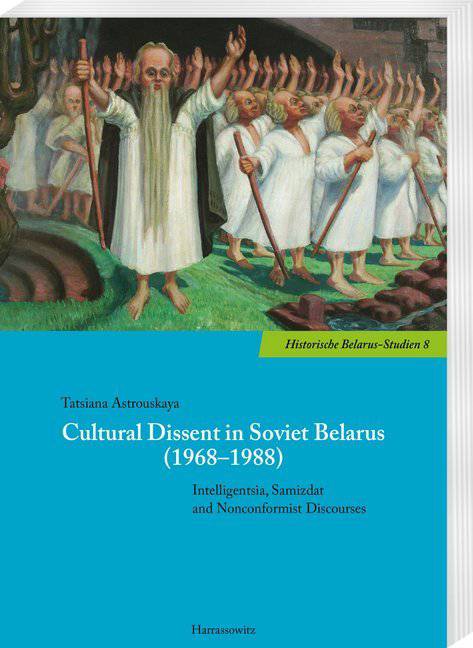
- Retrait gratuit dans votre magasin Club
- 7.000.000 titres dans notre catalogue
- Payer en toute sécurité
- Toujours un magasin près de chez vous
- Retrait gratuit dans votre magasin Club
- 7.000.0000 titres dans notre catalogue
- Payer en toute sécurité
- Toujours un magasin près de chez vous
Cultural Dissent in Soviet Belarus (1968-1988)
Intelligentsia, Samizdat and Nonconformist Discourses
Tatsiana Astrouskaya
47,45 €
+ 94 points
Description
Soviet Belarus has been often referred to as the most loyal of all Soviet republics, where there was no protest and no sign of nonconformism appeared. This image persisted well into the next decades, when Socialism collapsed, the independent state of Belarus arose, and the impulse of democratic development was once again endangered by the establishment of authoritarianism. This book focuses on the dissent ideas that circulated in the milieu of the Belarusian Soviet Intelligentsia both in samizdat (uncensored) and in the officially published literature. It argues that the latter was not less crucial for the transmission of the unconventional images of culture and identity than the former. These ideas forewent the unprecedented rise of the cultural and political life in the late 1980s-early 1990s, which had been often overshadowed by the further downfall. The timeframe of the study lies between 1968, when the events of the Prague Spring and its violent suppression altered the intellectuals' perception of themselves and of the Socialist order and 1988, when, on the eve of the Autumn of Nations in Eastern and Central Europe, the intellectual dissent in the BSSR melted into political protest. Which were the conditions of the rise and existence of nonconformism of the intelligentsia in the generally conformist society? How and by which instruments the samizdat publishing functioned, how and to which extent the exchange of ideas took place? And finally, how the Belarusian intelligentsia responded to the challenges of writing and thinking within the Socialist system? These questions are central to the book.
Spécifications
Parties prenantes
- Auteur(s) :
- Editeur:
Contenu
- Nombre de pages :
- 245
- Langue:
- Anglais
- Collection :
- Tome:
- n° 8
Caractéristiques
- EAN:
- 9783447111881
- Date de parution :
- 01-06-19
- Format:
- Livre broché
- Format numérique:
- Trade paperback (VS)
- Dimensions :
- 168 mm x 239 mm
- Poids :
- 544 g

Les avis
Nous publions uniquement les avis qui respectent les conditions requises. Consultez nos conditions pour les avis.






